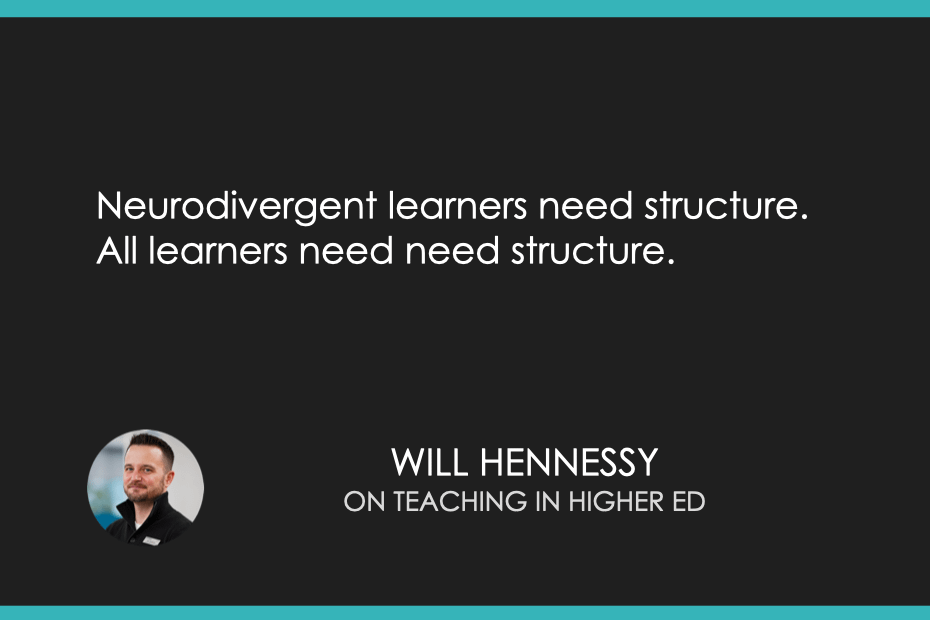
 Teaching in Higher Ed
Teaching in Higher Ed Fostering Neurodivergent Learners’ Growth
Jan 4, 2024
Will Hennessy, an advocate for fostering neurodivergent learners’ growth, shares about supporting neurodivergent learners and creating inclusive learning environments. Topics discussed include the challenges faced by neurodivergent learners, the importance of structure, accommodating different learning styles, and improving accessibility. Hennessy emphasizes the need for proactive teaching strategies and understanding individual needs.
Chapters
Transcript
Episode notes
1 2 3 4 5 6
Introduction
00:00 • 2min
Reflections on Being a Neurodivergent Learner
02:11 • 20min
Challenges of Having Everyone Read Aloud
22:00 • 2min
Supporting Neurodivergent Learners: Dyslexia and Challenges
24:00 • 15min
Teaching Neurodivergent Learners in their Preferred Learning Styles
38:59 • 3min
Improving Accessibility and Being Present
41:41 • 7min

